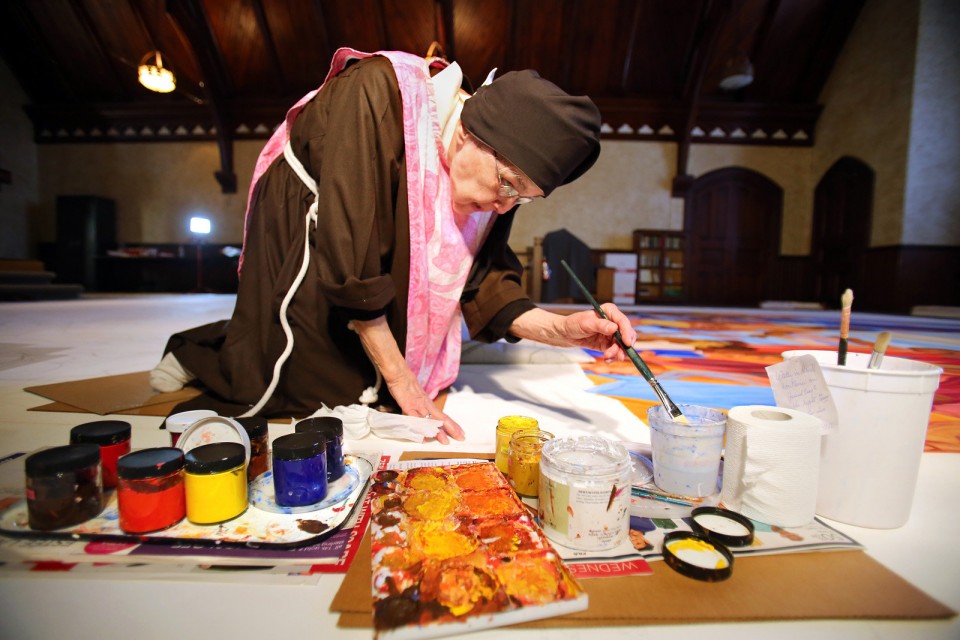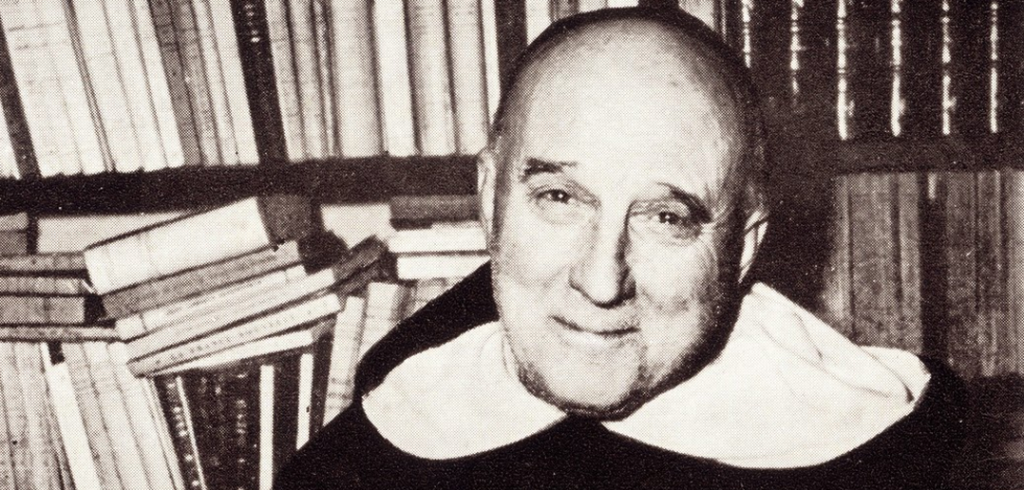Thus from the spiritual point of view, many souls are quickly, even too quickly, satisfied by a very relative perfection, which seems altogether insufficient to others. The latter feel a need for the eminent exercise of charity and of the gifts of the Holy Ghost. Certain very passionate temperaments and extremely vigorous intellects seem to find peace only in a lofty perfection, even that described by St John of the Cross. With still greater reason, this is true of souls which received early in life a superior attraction of grace. They will find rest only after the painful purification, in the transforming union, in which they will no longer be disturbed by the devil, the flesh, and the world. –Father Father Reginald Garrigou-Lagrange ‘Christian Perfection and Contemplation According to St Thomas Aquinas and St John of the Cross’
It is difficult to give Father Lagrange due diligence as life spreads me thin in energy, demanding much, allowing little time for reading. I accept the matter with grateful scrutiny, understanding God is demanding the living of life in order to fully be humbled and healed. Being a contemplative is not mastering knowledge. I must live the life God presents. I must be myself fully, a passionate man of seeking, a man going deeper, acceptance essential. Being open and vulnerable, acquiescing aspirations to the reality of failings, shortcomings softened by an opening to the Holy Spirit, I think of the wonderful earthen vessels painted purple the extern sisters at St Paul Shrine utilize to decorate their altar. Wonderful, colorful, seasonal gold accented, flowing pieces of fabric run down from the high altar, grace descending, water falling, the fabric cascading from both sides of the tabernacle and standing Eucharist, merrily moving past the three earthen vessels. The lower two vessels, positioned lateral, pouring out, emptiness spilling, grace dispensing to the adoring. The highest vessel stands erect, proud in stature, still and filled, the emptiness within defining interior space. The earthen vessels, beautifully shaped, colorful and attractive, are defined majestically by interior emptiness, the lacking being its greatest space. The vessels emptiness containing the potential for filling. I love the imagery during the Advent season, a time of preparation and concentration. It is a blessed time of the year.
Then he brought me back to the door of the temple; and behold, water was issuing from below the threshold of the temple toward the east; and the water was flowing down from below the south end of the threshold of the temple, south of the altar. Then he brought me out by way of the north gate, and led me round on the outside to the outer gate, that faces toward the east; and the water was coming out on the south side. Going on eastward with a line in his hand, the man measured a thousand cubits, and then led me through the water; and it was ankle-deep. Again he measured a thousand, and led me through the water; and it was knee-deep. Again he measured a thousand, and led me through the water; and it was up to the loins. Again he measured a thousand, and it was a river that I could not pass through, for the water had risen; it was deep enough to swim in, a river that could not be passed through. And he said to me, “Son of man, have you seen this.” –Ezekiel 47
Sometimes God asks us to do nothing more, and everything within, to extend ourselves only so we can be crushed on our deepest level, to be hurt so badly everything seems to collapse within us, to understand that the things I want the deepest will never come true, my profoundest loves never allowed to be nourished, to accept the fact we are nothing special, a simple lonely life within a complex wonderful world, a stranger in a strange land, nothing more than a man struggling, never seemingly able to achieve or attain the things I desire, a man of sorrows, even the goodness in life I aspire to being a futile attempt, always running late as a broken man, brokenhearted, beaten on every earthly level. I am a thirsty man diving to deep, my tongue parched, sore and weeping, unable to understand, determined to never cease, life amounting to a severe humbling, a hurt so penetrating it calls and cries out to God with a voice so loud it causes His Son to bleed eternally, the blood of Christ washing away my tears.






Recent Comments